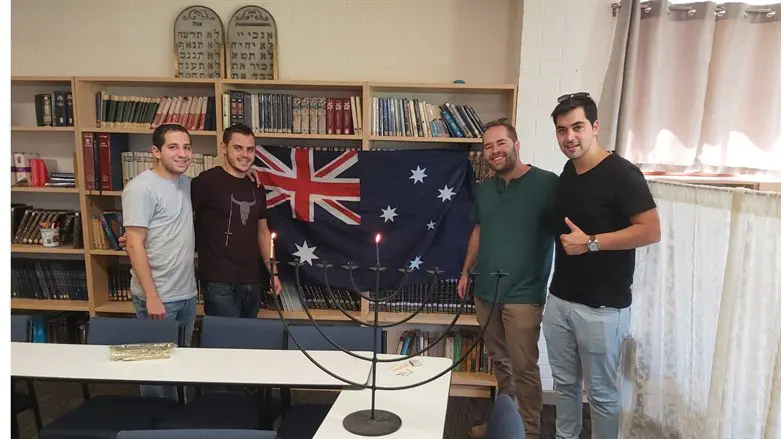
Dedicated in memory of Yaakov ben Avraham and Sarah Aharonov z"l
Most of parashat Tazria and the first section of parashat Metzora deal with the laws of Tzara’at, Leprous affection. The Torah presents the different forms of Tzarat and teaches when it is considered impure and when not. We learn that the person with an impure affection must remove himself from the camp, distancing himself from society.
“And the person with a leprous affection: his clothes shall be rent, the head shall be left bare, and the upper lip shall be covered over; and that person shall call out, “Impure! Impure!” The person shall be impure as long as the disease is present. Being impure, that person shall dwell apart—in a dwelling outside the camp.” (Vayikra 13/45-46)
When the disease is no longer present than:
“This shall be the law of the person afflicted with tzara'at, on the day of his cleansing: He shall be brought to the kohen. The kohen shall go outside the camp, and the kohen shall look, and behold, the lesion of tzara'at has healed in the afflicted person.” (Vayikra 14/2-3)
It is interesting to note the wording in these two verses. “the person afflicted with tzara’at... shall be brought to the kohen” and “The kohen shall go outside the camp”. Rabbi Naftali Tzvi Yehuda Berlin (the Netziv) in his commentary to the Torah, Ha’amek Daber, notes that the words “the person... shall be brought” teach that he is brought even if he needs to be coerced to do so. Even when a person does not care to become pure again, we require him to do so. Some people may be comfortable being impure and distanced from the requirements of kedusha, sanctity. We as a Jewish society have a requirement to push such a person forward, encouraging him (or her) to return to a state of purity, and enter the world of Kedusha.
On the other hand, “The Kohen shall go outside the camp”. The Kohen cannot sit passively responding only to those who bother to come to him. The kohen as an educator must initiate and take steps towards the hesitant to bring him (or her) back to the world of purity and sanctity.
Though we today do not have the reality of tzara’at, we can learn from it in similar situations. Just as the person afflicted with tzara’at is cut off from the Mikdash, so too are Jews in the diaspora detached from the sanctity of Eretz Yisrael, and in many cases from the world of Torah as well. It is therefore the responsibility of the community in Eretz Yisrael, in Medinat Yisrael, to find ways to encourage their brothers in the diaspora, to come home to the sanctity of our homeland. It is also our responsibility to reach out, to “go out”, as the kohen did and bring the world of Torah, a torah infused with the appreciation of Medinat Yisrael, to others.
Shabbat Shalom and Yom Atzmaut Sameach
Rabbi Moshe Abermanis former Rosh Kollel in Chicago (1997-1999) and currently a Torah advisor to the ShlichimFor comments: moshaber@gmail.com
Torah MiTzion stands in the forefront of the battle for the future of the Jewish people in the Diaspora, offering religious-Zionist Torah scholarship to Jewish communities throughout the world and strengthening the bond between the Jewish people in the Diaspora and in Israel via the study of Torah.